Flash Survey Results: How Do YOU Teach Personal Finance?
We were curious: With the start of the school year just around the corner, and as personal finance education slowly becomes more prevalent at the high school level, we wondered: How Do YOU Teach Personal Finance?
Thanks to the 197 survey respondents we have some key findings to share (see charts below for additional detail):
- The top 5 units that you are teach are Budgeting (93% of respondents), Savings (89%), Credit Cards/Credit Scores (83%), Checking (83%) and Taxes (80%)
- We were curious about various topics that you teach and found that these three are often included: Financial Goal Setting (85%), Renting an Apartment (78%), Life Insurance (58%). Here are three that are less frequently taught: Online shopping (40%), Selecting a College (40%), Build a Career w/o A Degree (28%).
- Teachers love using experiential activities to engage their students with 57% of educators preferring this method.
- Two topics that students struggle the most with: Investing (32%) and Taxes (20%)
- 70% of educators noted that their high school students had NOT received financial education at the middle school level.

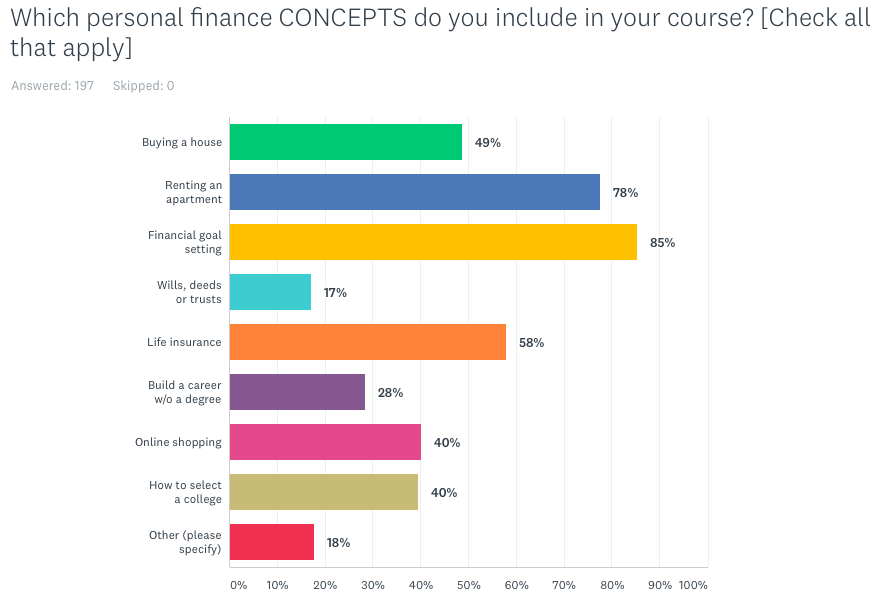

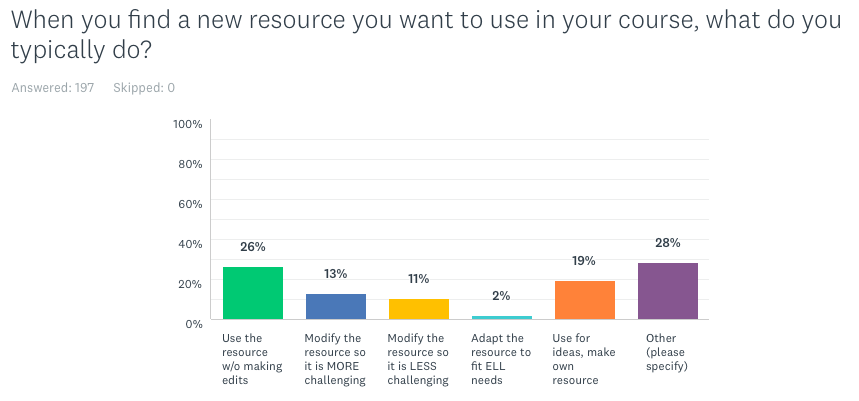
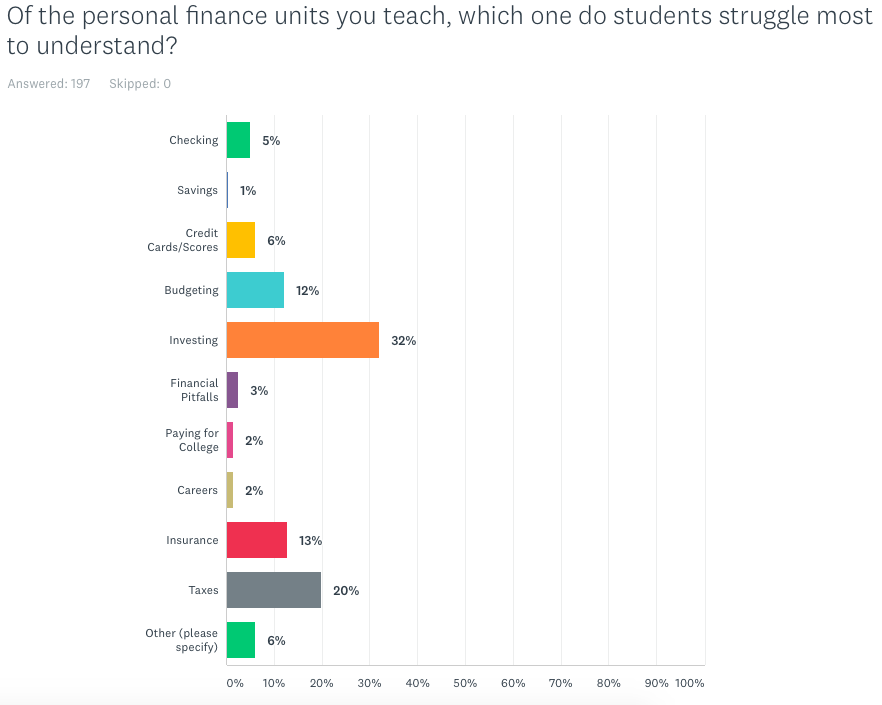
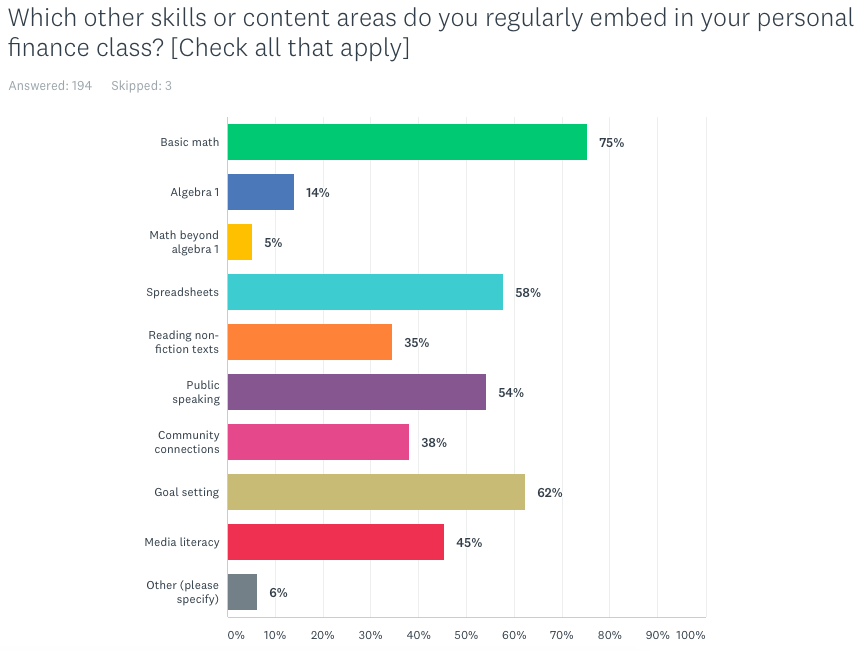
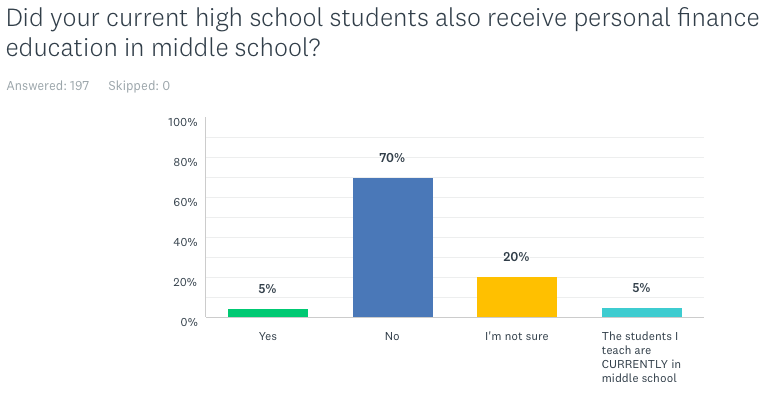
_____________
Check out our archived NGPF Flash Survey webpage to find out what other teachers are doing about technology, curriculum and professional development.
About the Author
Laura Matchett
After graduating with an education degree and spending 7 years in an elementary classroom, Laura made the switch to the non-profit world and loves interacting with students, educators and business professionals across the country. She is passionate about all students having access to high quality education and views personal finance education as one way to ‘level the playing field’. When Laura is not locating or creating high quality educational resources, you can find her mountain biking or searching for the best ramen in town!
SEARCH FOR CONTENT
Subscribe to the blog
Join the more than 11,000 teachers who get the NGPF daily blog delivered to their inbox:
MOST POPULAR POSTS









